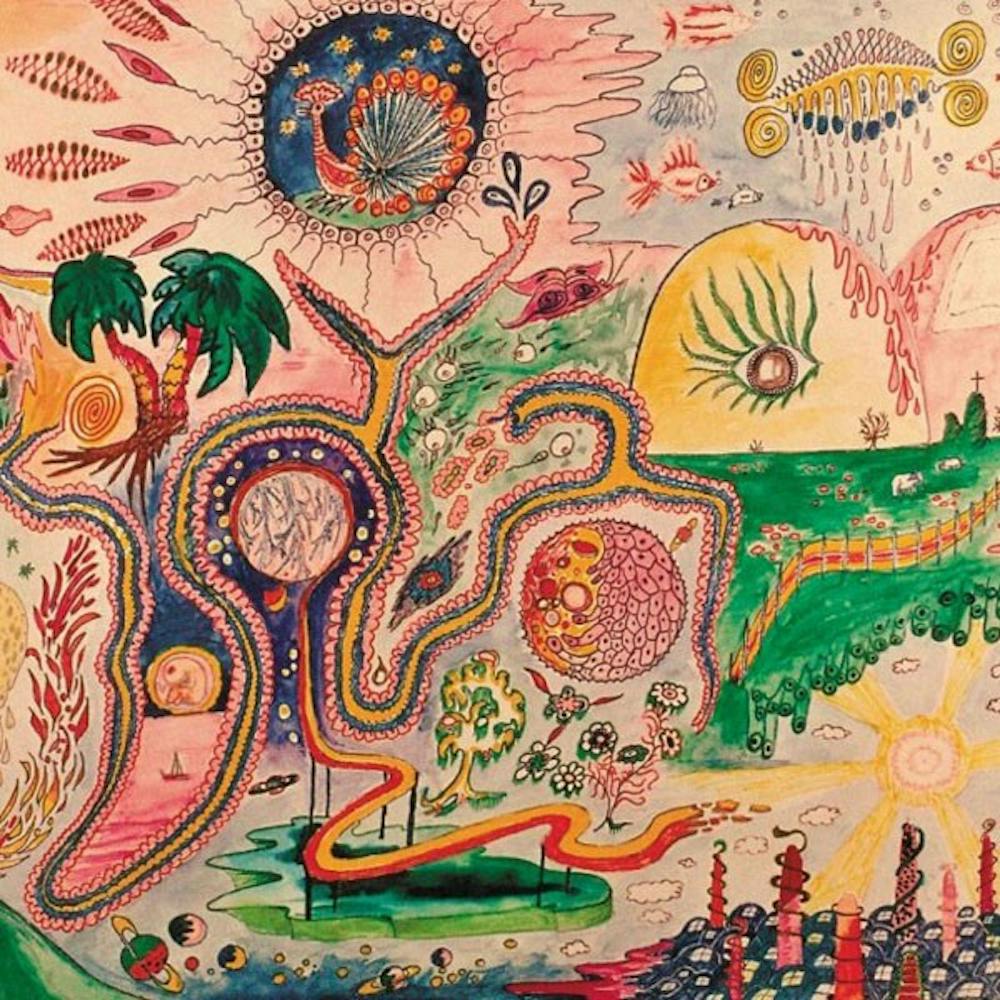 (Photo courtesy of stereogum.com )
(Photo courtesy of stereogum.com )Pitchforks: 4.5/5
Youth Lagoon’s sophomore album, "Wondrous Bughouse," tastes like fruit — not bananas or papayas, but more exotic and colorful fruit like durians, starfruit and kiwano melons. The only way to describe "Wondrous Bughouse" is extrasensory.
A year and a half ago, Youth Lagoon’s debut album, "The Year of Hibernation," charmed critics with its dreamy indie synth sounds. Trevor Powers, the artist pulling the strings behind the solo project, let his wispy voice drift along through reverberant song atmospheres. His first album, through his reserved nature, forged a new style in chill-wave indie rock music.
Powers’s newest album ripens his musical creativity. He has stepped from his shell, bringing with him bolder, more complex pieces. Considering that a bughouse is a mental hospital or asylum, the album deals with the mind — the human psyche.
NPR gives a preview for the album, which it currently streams on its website.
“Thematically, Powers finds himself in an existential spiral, as he asks grand questions about mortality, the spiritual world and his own mental state — which he describes as ‘hyperactive,’" said NPR's Robin Hilton. "Weighty subjects ripe for pensive introspection, sure, but the music is uplifting, if a bit dysphoric, like an awkward hug for all that is light and beautiful.”
The album’s songs are dense and complex with abstract tones and fuzzy effects. Its album artwork uses at least two dozen colors and features a fiery peacock, a golden tree and red spires poking through bubbles. The song titles boast similar creativity, with names such as “Daisyphobia” and “Pelican Man.”
Concerning recent hallucinogenic music, "Wondrous Bughouse" recalls Animal Collective’s album "Centipede Hz" in its similar ability to compose layers of colored and textured sounds. If both albums seem to reweave the psychedelic tapestry in the Beatles’ "Magical Mystery Tour," Youth Lagoon’s comes closest. Unlike "Centipede Hz," which fires off its sounds through paintball guns, "Wondrous Bughouse" gently showers its noises through a slow-drip nozzle. There is a delicacy and deep meaning underlying the album.
The aptly titled lead song, “Through the Mind and Back,” initiates the dreamy voyage to follow. It has no distinguishable melody, but it rather pulses with random popping and clanging sounds to simulate the phase just before falling asleep. The noises mellow out and lead into “Mute.” Powers’s voice returns for the first time early on this track, retaining its echoing reverberation from "The Year of Hibernation."
Youth Lagoon has a unique talent that returns on this track for the first time in the album. The band creates a languorous din in its songs but then manages to compose beautiful melodies from its midst. On the second track “Mute,” a series of high-pitched chimes suddenly lead into entrancing guitar solos and drum beats.
The same trick happens later in “Raspberry Cane.” The song starts in a lazy, withered manner. Powers does not sing with his voice, he merely lets it leak out. An uninspired piano seeps a simple tune until suddenly — with a burst of life — an uplifting melody breathes the song to motion. The withered field suddenly grows raspberries.
All the notes in “Bath” sound like they are stored in bubbles underwater. Hazy piano notes and Power’s own watery voice submerge the song early on, but a melody that begins at the two-minute mark sways in a deep-sea current.
The imagery continues. “Attic Doctor” was recorded amid the bustle at a carnival touring around another planet – not a bare red planet like Mars, but a world more like the moon Pandora from James Cameron’s "Avatar," only stocked with more flowers and brighter sunshine. “Attic Doctor” is a waltz for sunflowers.
To remind the listener that the voyage travels through the human psyche, Powers places a song titled “Sleep Paralysis” halfway through the album. Just in case listeners were ready to wake up, the calming lullaby in “Sleep Paralysis” coaxes them back to the trance, where they can continue enjoying the eidetic imagery.
That’s not to say "Wondrous Bughouse" oozes joy in every track. “Dropla” begins cheerfully. Powers finally enunciates his voice when chanting “You’ll never die” over and over, accompanied by a dainty rhythm. However, the song quickly darkens. Powers sings, “You weren’t there / when I needed you” as the music gets louder, as a shadow descends. Suddenly Powers is repeating “You’ll never die,” only this time around he sounds possessed. His voice becomes scratchy in chilling anguish.
Like gazing dolls and mannequins, “Third Dystopia” feels unnerving in its cheerful nature. If a dystopia denotes an imagined land filled with unpleasant and bad experiences, then the pier-like ferris wheel feel to this one belongs somewhere else, unless this third dystopia is a place where happiness can never quite be complete.
The songs here will not be blasted out from 12-inch car subwoofers, nor will they be heard on radio stations, or even in public settings. Powers has constructed a creative masterpiece best enjoyed in the most intimate settings: headphones on and the mind turned on. The payback is enormous.
"Wondrous Bughouse" is not for everyone. It is for those willing to listen with their imagination.
Reach the reporter at jconigli@asu.edu




